The Latest
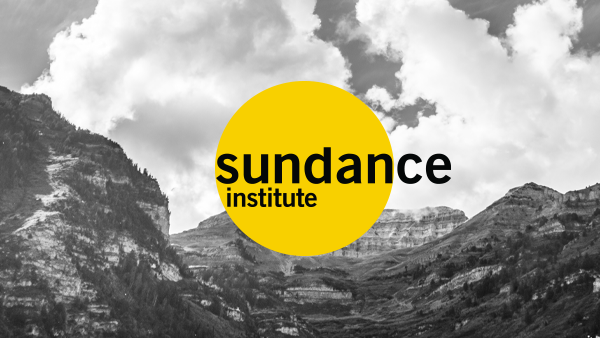
Go Inside the Music of ‘Circumstance’ with Composer Gingger Shankar
We had our world premiere of Circumstance at the Library Theatre during the Sundance Film Festival. After being involved with the project since the 2007 Sundance Institute Composers Lab, there were so many mixed emotions going into the premiere! There were nerves, of course, as well as this feeling of relief. I have been so proud of this film and could not wait for people to see it, so to finally be there at the theater waiting for it to start was quite emotional.

Cinema Cafe: How to Make Art Matter
At a festival that showcases films from around the world, that exposes audiences here and beyond to a wide spectrum of cultures, classes, and political realities, and that was founded by an actor turned influential advocate, it’s apparent that art can have an impact on society. But what kind of an impact? And what responsibility do artists have to the future of our country, the education of our children, and the greater good? These were among the questions that three renowned artists wrestled with at Power of Story: Making Art Matter, a panel discussion held at the Egyptian Theatre on Saturday. Moderated by Rachel Goslins, who serves as the Executive Director of the President’s Committee on the Arts and Humanities, the panel featured pioneering broadcaster and constitutional rights advocate Norman Lear, stage and screen director and former producer of New York’s Public Theater, George C.
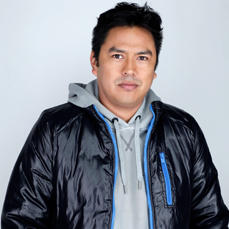
Q&A: Native Filmmaker Billy Luther on His Film ‘Miss Navajo’
Billy Luther studied filmmaking at Hampshire College, where he developed an affinity for documentary, but he says that much of his real education happened working in various organizations, including the National Museum of the American Indian and Third World Newsreel. Luther, who belongs to the Navajo, Hopi, and Laguna Pueblo tribes, has also won numerous grants and fellowships, including a Tribeca Film Institute Media Fellowship and Sundance Institute’s Native Initiative/Ford Foundation Fellowship. Luther screened his first feature film, Miss Navajo, at the Festival in 2007, and is back this year with a new documentary, GRAB, a portrait of contemporary life in the Laguna Pueblo tribe in New Mexico, which honors family members in an annual tradition that involves throwing food and gifts from the rooftops of their homes to the community that gathers below.

Coming of Age, with Monkeys and Bud Cort
Another morning at the 2011 Sundance Film Festival means another fascinating conversation at the Cinema Cafe in the Filmmakers Lodge. This time it was a meeting of the minds between two writer/directors, Athina Rachel Tsangari (Attenberg) and Richard Ayoade (Submarine). Both films deal with young people finding their way into the adult world, but the other similarities between these two filmmakers are less obvious.

Tip of the Hat to Sundance-Supported Oscar Noms
Sundance Institute had a great showing at the Oscar nominations this year! Congrats to all these projects which have been supported through Sundance Institute or the Sundance Film Festival.
Nominees for Best Motion Picture:
The Kids Are All Right-Gary Gilbert, Jeffrey Levy-Hinte, and Celine Rattray Winter’s Bone-Anne Rosellini and Alix Madigan-Yorki
Adapted Screenplay:
Winter’s Bone-Adapted for the screen by Debra Granik and Anne Rosellini
Original Screenplay:
The Kids Are All Right-Written by Lisa Cholodenko and Stuart Blumberg
Best Documentary Feature:
Exit through the Gift Shop-Banksy and Jaimie D’Cruz Gasland-Josh Fox and Trish Adlesic Restrepo-Tim Hetherington and Sebastian Junger Waste Land-Lucy Walker and Angus Aynsley
Performance by an Actor in a Supporting Role:
John Hawkes in Winter’s Bone Mark Ruffalo in The Kids Are All Right
Performance by an Actress in a Leading Role:
Annette Bening in The Kids Are All Right Jennifer Lawrence in Winter’s Bone Michelle Williams in Blue Valentine
Performance by an Actress in a Supporting Role:
Jacki Weaver in Animal Kingdom
Best Foreign Language Film of the Year:
Incendies (Canada) In a Better World (Denmark)
Best Animated Short Film:
Madagascar, carnet de voyage (Madagascar, a Journey Diary).

Q&A: Paul Mariano and Kurt Norton on Their Documentary ‘These Amazing Shadows’
Motion pictures are significant cultural, historical, and aesthetic artifacts, yet 50% of all films made before 1950 no longer exist, says These Amazing Shadows co-director Paul Mariano. His film documents the National Film Registry’s work to preserve significant films for future generations and highlights the need for such preservation: film reflects and challenges our culture; it binds us together; and it will stand as a critical record to future generations of who we are and how we live. Mariano and his co-director Kurt Norton and Library of Congress film preservationist George Willeman answered questions following the Sundance Film Festival premiere in Park City.

Inaugural Sundance Institute | Mahindra Global Filmmaking Award Recipients Announced
PARK CITY, UT — Sundance Institute and Mahindra today announced the winners of the inaugural Sundance Institute|Mahindra Global Filmmaking Award, in recognition and support ofemerging independent filmmakers from around the world. The winning directors and projects are: Bogdan Mustata, WOLF from Romania; Ernesto Contreras, I DREAM IN ANOTHER LANGUAGE from Mexico; Seng Tat Liew, IN WHAT CITY DOES IT LIVE? from Malaysia; and Talya Lavie, ZERO MOTIVATION from Israel. The awards were presented at a private ceremony at the Sundance Film Festival, currently underway in Park City, Utah.

Inside New Fronter’s Participatory Sundance Work ‘A Machine to See With’
I found myself in the driver’s seat of a parked Chevy Malibu, anxiously alternating between the rearview and sideview mirrors, wondering how in the world I got there. The car wasn’t mine. I didn’t even know whose it was.

Robert Redford Shares His Story with Directors
Saturday morning, as part of what Robert Redford likes to refer to as his favorite Festival tradition, all of the filmmakers boarded a caravan of buses to take them from Park City up the mountain pass to the Sundance Resort-the place “where everything began.” When Redford first realized the need for a safe, secluded space for artists to work away from the pressures of Hollywood and the rest of the world, he opened up his home at Sundance. That’s where Sundance Institute’s first Filmmakers Lab was born, and over the last thirty years has grown into year-round artist development programs that have expanded from feature filmmaking to documentary, film music, and theatre.

Q&A: The Greatest Movie Ever Sold
Morgan Spurlock’s The Greatest Movie Ever Sold is a documentary about brand collateral, product placement in movies, and co-promotion and it’s really funny. Using himself and his attempts to get $1.5 million in funds from corporations who would like their products advertised in a documentary about product advertising in movies, Spurlock is his usual charming, funny, and insightful self as he becomes the ringleader of a circus of visits and negotiations with companies (Ban deodorant, Jet Blue, POM Wonderful, the island of Aruba) that eventually come around to his idea, even though they were aware that they will not get final approval of the film and are subject to Spurlock’s desire for transparency.
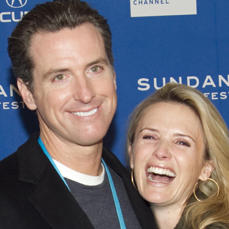
Q&A: Miss Representation
Jennifer Siebel Newsom’s empowering documentary Miss Representation explores the underrepresentation of women in media, government, and business. Blending interviews with female leaders (Gloria Steinem, Condoleezza Rice, Geena Davis, and Katie Couric to name a few) and politicians including her husband Lieutenant Governor of California Gavin Newsom, and eye-opening statistics on the role of women in American society, Siebel Newsom’s directorial debut is what she likes to label a “call-to-action” film. Weaved throughout Miss Representation is the director’s own story – dealing with discrimination as an educated, late 20-something in the acting world, a two-year struggle with an eating disorder, and the birth of her daughter Montana.
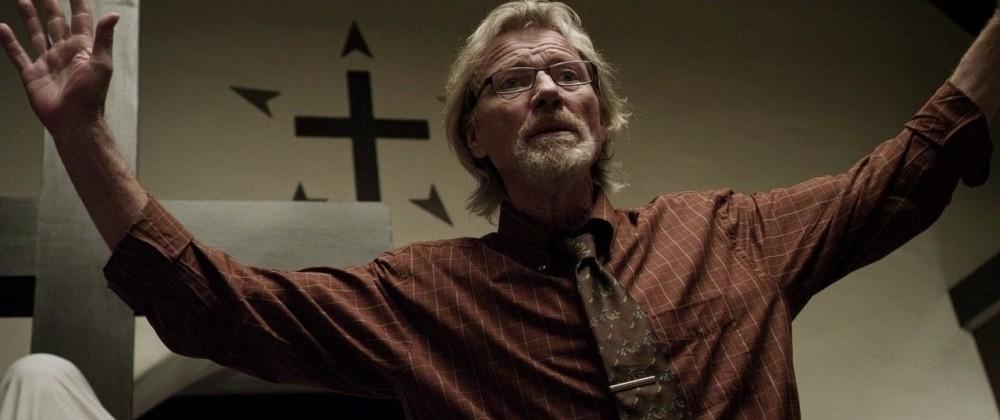
How Kevin Smith Made and Distributed ‘Red State’ His Own Way
“Okay, so that was different,” director Kevin Smith said first thing Sunday night after his movie Red State premiered at the Eccles Theatre. He wasn’t talking about the Westboro Baptist Church protestors or the much larger group of counter-protestors that surrounded Eccles before the premiere (Red State is about a clan of religious zealots who also happen to be murderers, thus explaining the church members’ presence at the premiere, but the presence of the counter-protestors, including many local high school students, and their inspired, surreal posters can be credited to Smith, who urged his fans to show up). He was talking about his wild, subversive, shocking, dark, and unforgettable new movie, but it’s eerie how aptly his comment summed up the mood at Eccles that was evident on everyone’s faces as they left the theater: the whole night was, in fact, really different from any other Festival premiere.
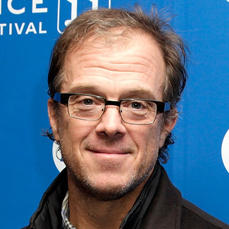
Q&A: The Last Mountain
Bill Haney’s sobering, engrossing documentary The Last Mountain details a practice that has only recently garnered coverage in America although it threatens to endanger the drinking water of tens of millions of Americans. Mountaintop removal – which the coal industry endorses because it ensures maximum profit in the most efficient manner – involves blasting off the tops of mountains to have easier access to the coal seams within those mountains. In West Virginia, where the practice threatens to ruin Coal River Mountain, the last mountain near the homes of a small but determined tribe of activists, the coal industry is particularly powerful, although Haney points out in the film how prevalent coal plants are throughout most of the United States.
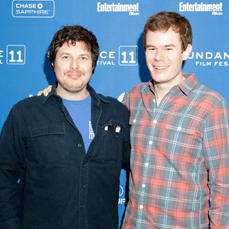
Q&A: Mumblecore Director Joe Swanberg on Making ‘Uncle Kent’
Judging from the coverage about them, you get the sense that some of the directors and actors associated with the mumblecore movement would rather lounge on a bed of nails than hear that term again. It seems as if mumblecore, the genre of low-budget, sexually frank, microscopically intimate movies about characters trying to define their lives, usually made with a director’s friends and even family, is something those directors and actors used to do, not something they still claim as their own. Then there’s 29-year-old Joe Swanberg, who—more than the Duplass brothers, Greta Gerwig, Jess Weixler, or Andrew Bujaski—has kept the mumblecore torch burning.
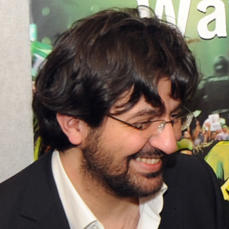
Q&A: The Green Wave
The summer of 2009 was supposed to usher in a new age of noticeable and lasting democracy in Iran. A groundswell of optimism for real societal change was roaring through the country in anticipation of new presidential elections, and many thought the overthrow of the economically and politically disastrous administration of Mahmoud Ahmadinejad was imminent. This “green wave” of reform grew to become a formidable force, taking to the streets en masse with a thunderous and self-assured voice for real and lasting change and a new beginning for Iran.
